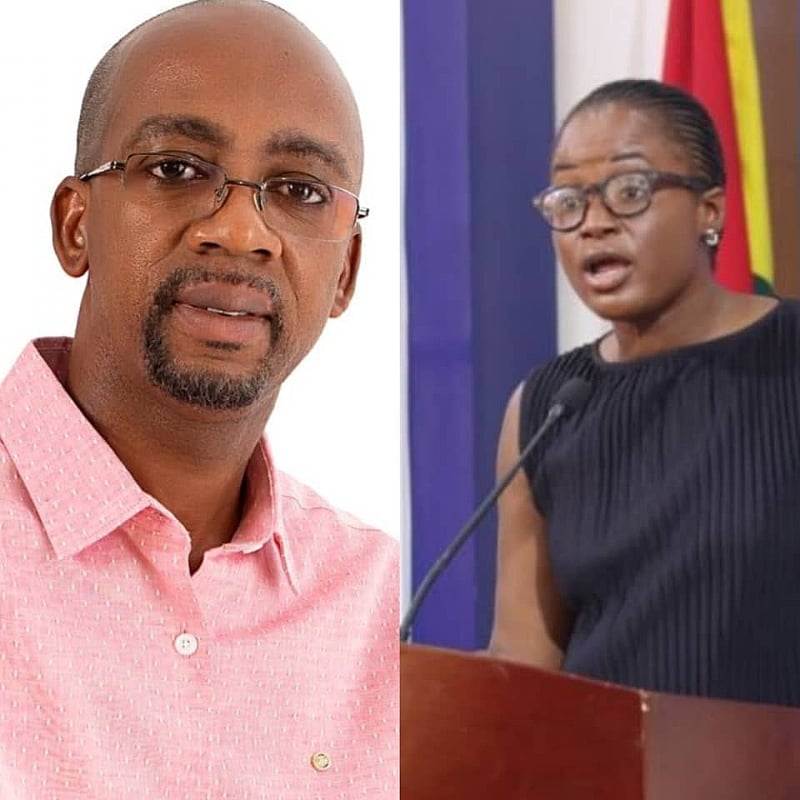Rex Omar, a prominent Ghanaian musician and activist, has raised serious concerns regarding alleged financial improprieties involving Gyankroma Akufo-Addo, daughter of the outgoing President Nana Addo Dankwa Akufo-Addo. He has called for a thorough investigation into these allegations, specifically focusing on transactions related to the procurement of ambulances during Gyankroma Akufo-Addo’s tenure as a Board Member of the Creative Arts Council. Omar believes these transactions represent a significant misuse of public funds and should be scrutinized under the proposed Operation Recover All Loots (ORAL) initiative by the incoming administration. This call for accountability underscores the growing public demand for transparency and responsible governance in Ghana.
The core of Omar’s accusations centers around two substantial sums of money allegedly allocated to Gyankroma Akufo-Addo and her associates. The first involves an alleged $58 million purportedly disbursed for the purchase of approximately 307 ambulances. Omar questions the propriety of this transaction, particularly the involvement of the President’s daughter in such a significant procurement process. He argues that this arrangement warrants a comprehensive investigation to determine whether proper procedures were followed, whether value for money was achieved, and whether any potential conflicts of interest were adequately addressed. The implication is that the involvement of a close family member of the President raises red flags and necessitates rigorous scrutiny to dispel any suspicions of undue influence or preferential treatment.
The second allegation relates to a further $34.9 million allegedly allocated for the procurement of spare parts for the aforementioned ambulances. Omar contends that this amount is excessive and questions the rationale behind allocating such a large sum for spare parts when, in his view, it could have been used to acquire additional ambulances, thereby enhancing the country’s emergency medical services capacity. He views this allocation as a potential misallocation of resources, suggesting that the funds could have been utilized more effectively to address other pressing healthcare needs. This raises questions about the prioritization of public spending and whether the decision-making process was driven by genuine public need or other considerations.
These allegations, according to Rex Omar, form part of a broader pattern of what he terms “scandalous lootings” of Ghana’s resources. He asserts that such practices erode public trust and undermine the country’s development. By highlighting these particular instances, he aims to draw attention to a potentially systemic problem of financial mismanagement within the government. Omar’s forceful call for an investigation is not merely about recovering potentially misappropriated funds, but also about establishing a precedent of accountability and demonstrating a commitment to transparent governance. He believes that holding individuals responsible for such alleged misdealings is crucial for restoring public faith in government institutions.
Omar’s advocacy for the ORAL initiative reflects a broader sentiment among some sections of the Ghanaian public for greater accountability and transparency in government dealings. The proposed initiative is seen as a mechanism to address past instances of alleged corruption and recover misappropriated funds. By calling for these specific allegations to be investigated under the ORAL framework, Omar is seeking to leverage this initiative to address what he perceives as a systemic problem. He hopes that a thorough investigation will not only uncover any wrongdoing but also serve as a deterrent against future acts of corruption.
The allegations made by Rex Omar raise important questions about governance, transparency, and accountability in Ghana. They highlight the need for robust mechanisms to ensure that public funds are utilized responsibly and that individuals in positions of power are held accountable for their actions. The call for an investigation represents a demand for greater transparency and a commitment to ensuring that public resources are used for the benefit of the citizenry. The outcome of any potential investigation will be crucial in determining the veracity of these allegations and shaping public perception regarding the integrity of public institutions in Ghana.


